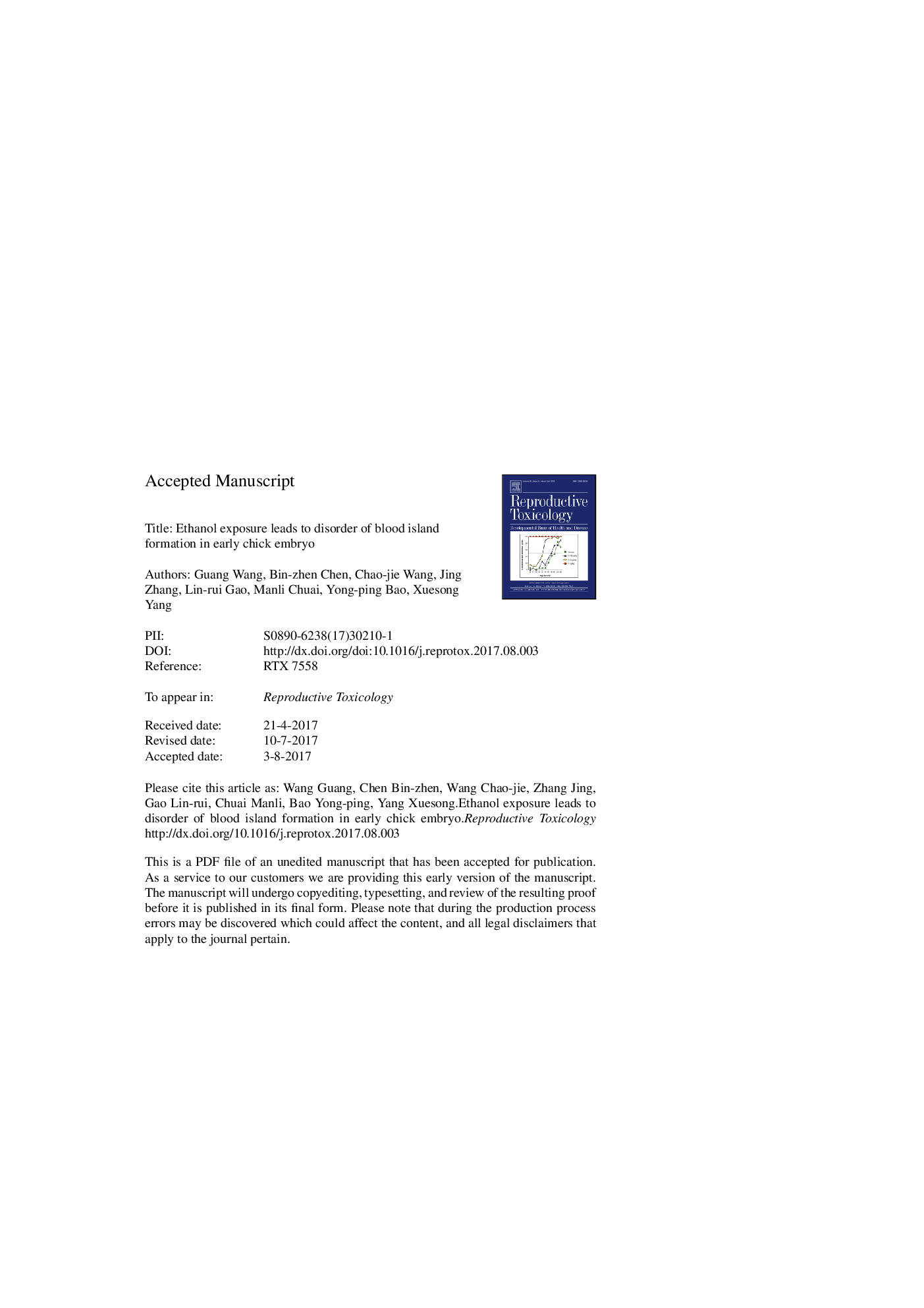| Article ID | Journal | Published Year | Pages | File Type |
|---|---|---|---|---|
| 8552613 | Reproductive Toxicology | 2017 | 28 Pages |
Abstract
Ethanol's effect on embryonic vasculogenesis and its underlying mechanism is obscure. Using VE-cadherin in situ hybridization, we found blood islands formation was inhibited in area opaca, but abnormal VE-cadherin+ cells were seen in area pellucida. We hypothesise ethanol may affect blood island progenitor cell migration and differentiation. DiI and in vitro experiments revealed ethanol inhibited cell migration, Quantitative PCR analysis revealed that ethanol exposure enhanced cell differentiation in area pellucida of HH5 chick embryos and repressed cell differentiation in area pellucida of HH8 chick embryos. By exposing to 2,2â²-azobis-amidinopropane dihydrochloride, a ROS inducer, which gave a similar anti-vasculogenesis effect as ethanol and this anti-vasculogenesis effect could be reversed by vitamin C. Overall, exposing early chick embryos to ethanol represses blood island progenitor cell migration but disturbed differentiation at a different stage, so that the disorder of blood island formation occurs through excess ROS production and altered vascular-associated gene expression.
Keywords
Related Topics
Life Sciences
Environmental Science
Health, Toxicology and Mutagenesis
Authors
Guang Wang, Bin-zhen Chen, Chao-jie Wang, Jing Zhang, Lin-rui Gao, Manli Chuai, Yongping Bao, Xuesong Yang,
